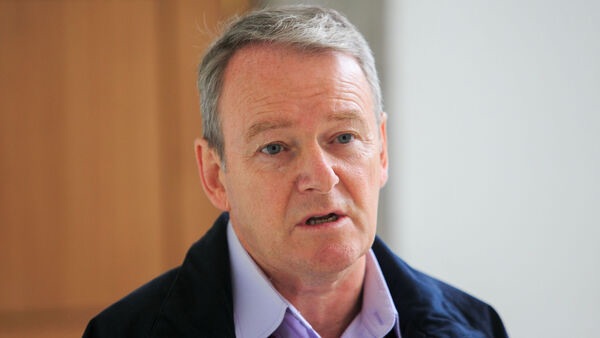
A controversy over a tweet by Sinn Féin TD Brian Stanley has been allowed to overshadow the centenary of the Kilmichael Ambush, one of the most significant military blows to British rule in Ireland in Irish history.
A flying column of thirty-six local IRA volunteers, commanded by legendary fighter Tom Barry, killed seventeen ‘elite’ Auxiliaries, losing only three Volunteers in return.
The IRA carried out the ambush on 28 November, 1920 in response to the Bloody Sunday massacre of civilians by the Crown Forces a week earlier. News of the losses stunned the British military and government of the day.
Tom Barry, who remained a lifelong republican, later wrote: “They said I was ruthless, daring, savage, blood thirsty, even heartless. The clergy called me and my comrades murderers; but the British were met with their own weapons. They had gone in the mire to destroy us and our nation and down after them we had to go.”
Last week, Mr Stanley compared the attack at Kilmichael to another IRA ambush which took place at Warrenpoint in 1979, in many ways a similar attack which had a similar effect. Eighteen members of the British Army’s Parachute Regiment were killed in the ambush without any casualties on the part of the Provisional IRA’s South Armagh Brigade.
He wrote: “The 2 IRA operation that taught the elite of [the] British army and the establishment the cost of occupying Ireland. Pity for everyone they were such slow learners.”
But the comparison, and the truth of the lesson, were too much to bear for the anti-republican establishment in Dublin, who insist that the cause of Irish freedom is only acceptable if it predates the empowerment of Fianna Fáil and Fine Gael.
At the heart of the furore is a battle over the legacy of the Provisional IRA’s armed struggle, and the Machiavellian efforts taking place to disparage and marginalise that campaign, which ended in 1996.
In recent years, statements by Sinn Féin politicians making positive reference to the IRA have gained publicity and controversy, and have often ended with damaging apologies and retractions.
That pattern was repeated this week, with elements within Sinn Féin accused of failing to defend their own movement and aligning with a reactionary agenda.
Mr Stanley deleted and apologised for his tweet on Saturday, but it was all just grist to the mill for Fine Gael, whose members and representatives have been engaging in an increasingly bitter and petty war with Sinn Féin on social media.
They trawled through his previous tweets to find one, written three and a half years ago, which they claimed was homophobic. In the wake of party leader Leo Varadkar taking on the post of Taoiseach and coming out as homosexual, Mr Stanley tweeted, uncontroversially at the time, “U can do what u like in bed but don’t look 4 a pay rise the next morning.”
With himself and his family now the subject of a left-right witch-hunt, Mr Stanley has deleted his social media accounts. But backed by the Dublin media, senior Fine Gael Ministers have continued to issue statements implying that he has something to hide.
Justice Minister Helen McEntee ironically demanded Mr Stanley address the parliament in regard to the tweets, despite her own failure to answer questions over the recent appointment of a former Fine Gael Attorney General to the Supreme Court.
In an apparent effort to defuse the situation on Friday, Mary Lou McDonald said Mr Stanley had agreed to address the Dáil.
“At my request, Teachta Stanley will take next week to be with his family; for whom this period of public controversy and comment has proven very difficult,” she said in a statement.
“Teachta Stanley has this afternoon written to the ceann comhairle to request time to make a full personal statement to the Dáil on the 15th December.”
The former president of Republican Sinn Féin Des Dalton said the Irish cause was being denigrated by the furore.
“The recent tweet by Brian Stanley, following the one by Martina Anderson a few months ago and the reaction they elicited, have become something of a pattern,” he said.
“It begins with a Provisional Sinn Féin public representative issuing, what on the surface appears to be a very strong republican tweet or public statement.
“Within 24 hours the statement is retracted or the tweet is deleted and an obsequious apology is issued by PSF and the individual concerned.
“Provisional Sinn Féin need to stop playing these political games with our revolutionary history. They have long ago abandoned the very basic tenets of traditional Irish Republicanism.
“Using our history in such a manner does a gross disservice to our patriot dead and all those who played their part in the struggle for Irish freedom.”
![[Irish Republican News]](https://republican-news.org/graphics/title_gifs/rn.gif)
![[Irish Republican News]](https://republican-news.org/graphics/title_gifs/harp.gif)

